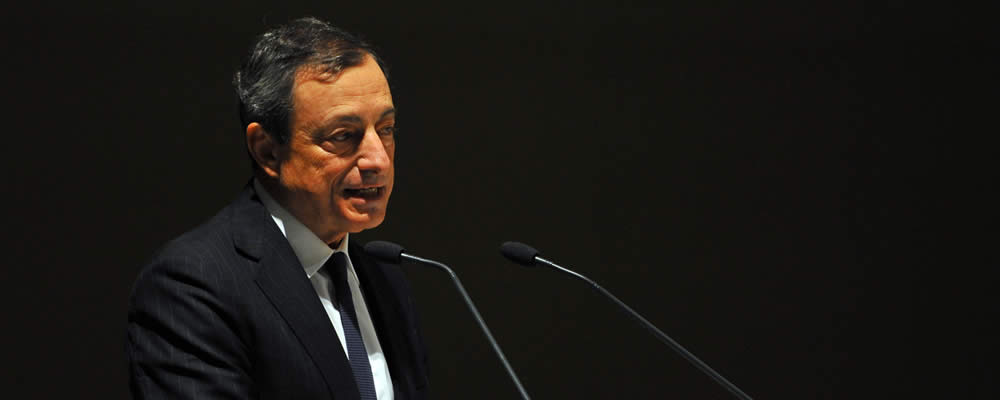The Euro Swiss Franc (EUR CHF) exchange rate appeared to have stabilised at a three-month high early this morning after an upbeat market reaction to last week’s European Central Bank (ECB) policy meeting.
While the Bank predictably voted to leave its ultra-loose monetary policy unchanged at the meeting, the following statement from ECB President Mario Draghi drove the single currency higher as he struck an uncharacteristically hawkish tone.
Draghi’s claim that the Eurozone was no longer at risk of deflation was seen as a sign from investors that the ECB would not seek to extend its quantitative easing programme past December, likely leading to the tightening of policy in 2018 following an uptick in the Eurozone economy in recent months.
There is also growing speculation that the central bank could even begin raising interest rates before the end of its bond-buying programme as policy makers are reported to have brought the issue up during discussions last week.
However most observers believe that such an outcome is unlikely as it would hamper the bank’s ability to react to shifts in the market.
Richard Barwell, economist at BNP Paribas Investment Partners said;
‘[It] could undermine the market’s confidence in the ECB’s message, which will hamstring Draghi’s ability to steer markets. It’s disappointing to learn that the fundamentals of the exit strategy are still up for debate this close to the point of lift-off.’
Analysts will be eager to learn more from Draghi when he makes a speech in Frankfurt later this afternoon, with EUR CHF likely to strengthen further if the ECB president makes further allusions to the possibility of tightening monetary policy, although the Euro could easily tumble if Draghi looks to reign in speculation by presenting a more dovish outlook.
However the single currency was already forced to cede ground ahead of his speech following the release of Italy’s latest Industrial Production report.
Figures compiled by Istat show that activity slipped further than initially thought at the start of the year, falling from 1.4% to -2.3% in January, a far larger contraction than the 0.8% fall predicted and its worse performance in five years.
The fall prompted further concerns that the third largest economy in the Eurozone may be facing an economic slowdown this year.
Meanwhile, the Swiss Franc began pushing higher this morning as safe haven demand crept up once again.
With the Dutch elections taking place on Wednesday and Brexit reportedly set to be triggered sometime this week as well, traders are scrambling to find a stable market to invest in, causing many to flock to CHF.
Such an outcome is unlikely to be welcomed by the Swiss National Bank (SNB) however as it continues to struggle with the overpriced Franc.
This is likely to cause the SNB vote to leave interest rates at a record low of -0.75% on Thursday as the bank seeks to reduce the appeal of the Swiss currency to help stabilise price developments and support economic activity.
Meanwhile the EUR CHF exchange rate may climb higher on Tuesday following the release of Germany’s latest Economic Survey from ZEW, with sentiment expected to rise from 10.4 to 13 in March as robust data from the Eurozone’s largest economy continues impressing economists.
However, the Euro could weaken further if political uncertainty prompts confidence to waver this close to the Dutch and French elections.
Current Interbank Exchange Rates
At the time of writing the EUR CHF exchange rate was trending around 1.07 and the CHF EUR exchange rate was trending around 0.93.
